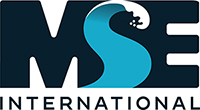EU Maritime study reveals rapid rise in shipbuilding 'patent protection'
Posted 2019-11-12 14:23:00 by Admin
 The KETmaritime project is being delivered by a consortium of seven partners across Europe in an effort to identify 'Key Enabling Technologies' to support the future needs and demands of the Atlantic maritime industry.
The KETmaritime project is being delivered by a consortium of seven partners across Europe in an effort to identify 'Key Enabling Technologies' to support the future needs and demands of the Atlantic maritime industry.The International Iberian Nanotechnology Laboratory (INL) located in Portugal is the lead partner in the Euro 1M KETmaritime project which is backed by the European Regional Development Fund.
The in-depth Advanced Manufacturing Shipbuilding Applications study examines both the current use and future potential of 'new-age' technology - including 3D-scanning, 3D-printing, robotics, virtual and augmented reality.
Further analysis of international classification patents illustrates the scale of innovation and new technology entering the global shipbuilding sector. Data was examined between the periods of 2010 and 2018 involving more than 3,800 patents.
Partners in the project spent considerable time reviewing global shipbuilding patents published in the last decade. The report notes that the production of patents in the field of shipbuilding has consistently doubled throughout the last decade, even tripling in 2018. This indicates that far from stagnating, innovations in manufacturing are increasing at pace.
The report also concludes that there are prominent patent families. The most prominent codes firmly indicate that 'industrial protection' activity is taking place in every aspect related to the manufacture of floating structures. This includes methods of designing, building, maintaining, converting, refitting, repairing, or determining properties of vessels.
The study also identified the most active patenting countries. Since 2010, China and Korea have dominated industrial protection activity in the field of shipbuilding. The most prominent applicants were Korean shipbuilders: Daewoo, Samsung, and Hyundai. These three organizations gathered more than 115% of the total patent production alone. This clearly indicates the prominence of specific operators in relation to commercially exploiting and protecting manufacturing innovations for shipbuilding.
The study crucially identifies a series of 'key enabling technologies' with potential to greatly influence the future Atlantic shipbuilding process. These include digital manufacturing technologies, involving tools for design, simulation, engineering, manufacturing, 3D scanning and 3D printing. In addition, ICT infrastructures, technologies and services are of high importance including wireless networks, mobile devices, cloud computing, low cost development hardware, cross-platform programming languages and wearables.
Furthermore, automation will be a key driver including 'intelligent' robotics, artificial vision and autonomous vehicles. Finally, simulation and immersion technologies are set to have a major impact involving virtual and augmented reality.
Commenting on the report, Ana Vila, project coordinator from INL said, "A critical factor is that all of this technology is approaching a point of maturity and affordability essentially making it more commercially viable. In addition, it is all becoming highly compatible, lending itself to scalable implementation. This is why advanced manufacturing is now of greater relevance and importance than ever before.
"Key findings from this specific KETmaritime case study on 'Advanced Manufacturing for Shipbuilding Applications' highlight why successful implementation of new and advanced technology is of paramount importance to the competitiveness of the Atlantic shipbuilding trade."
To download a full copy of the report please visit:
http://ketmaritime.eu/media/


